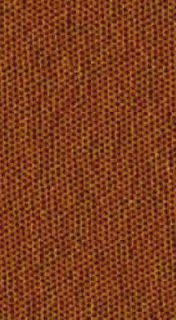 Polymers that arrange into nanostructures could store terabits on a square inch.
Polymers that arrange into nanostructures could store terabits on a square inch.
The self-assembling of materials known as block copolymers could provide a low-cost, efficient way to fabricate ultra-high-density computer memory. Block copolymers, which are made of chemically different polymers linked together, can arrange themselves into arrays of nanoscale dots on surfaces, which could be used as templates for creating tiny magnetic bits that store data on hard disks. Until now, though, there was no simple, quick way to coax the block copolymer to make the desired arrays over large areas.
Researchers at the University of California, Berkeley, and the University of Massachusetts Amherst have found a simple way to coat square inches of substrate with block copolymers. The highly ordered pattern formed by the copolymers could be used to create hard disks with 10 terabits squeezed into a square inch, the researchers report this week in Science.

Geen opmerkingen:
Een reactie posten